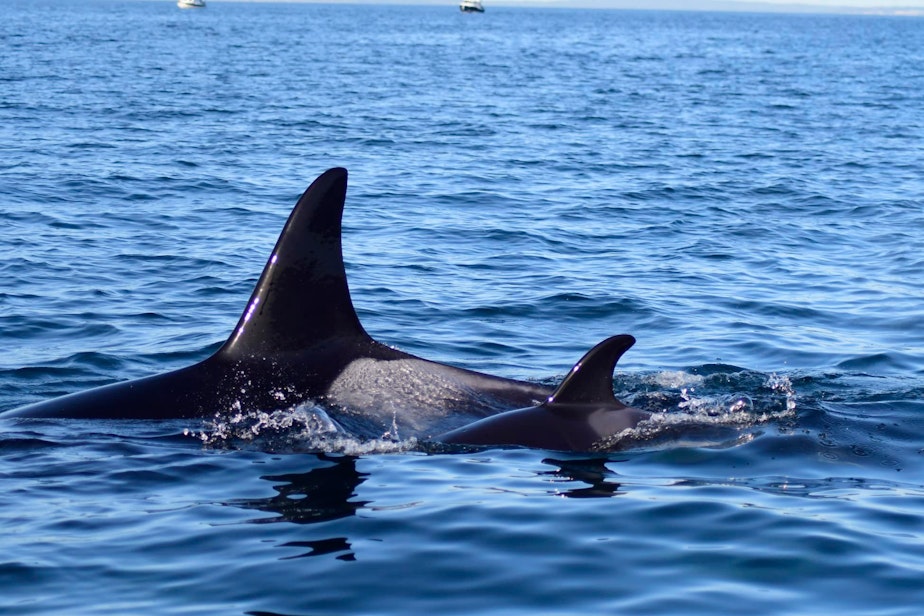Endangered baby orca J60 missing, presumed dead

The baby orca known as J60 is missing and presumed dead, according to the Center for Whale Research.
The month-old male was the youngest member of the Northwest’s endangered population of salmon-eating killer whales, which often die before their first birthday due to toxic pollution and a lack of food.
On Saturday, a three-person team from the Center for Whale Research spotted most of J Pod in Washington’s San Juan Channel between San Juan Island and Shaw Island. J Pod is one of three extended-family groups that often travel together -- the other two are K and L Pods.
They documented the orcas from their research boat, with telephoto lenses and a federally permitted drone, for nearly two hours and observed every member of J Pod -- except J60.
“Given his young age, it is extremely unlikely that J60 was off on his own for the entire duration of the encounter,” the research team writes. “While our protocols require at least three full censuses of the group to confirm mortality, we now believe that J60 is likely deceased.”
READ: Newborn orca spotted near Seattle off Bainbridge Island
While the birth or death of a single wild animal is rarely newsworthy, the population of southern resident killer whales is so low – now estimated at 74 – that the fate of an individual can be important to the survival of their kind.
Tom Wooten, chairman of the Samish Indian Nation, told KUOW earlier in January that the tribe would give the young male whale a traditional Samish name but would hold off until the whale’s first birthday, given the high death rate among newborn orcas.
A scarcity of Chinook salmon to eat remains a dire problem for these top predators.
“Our research really is indicating that it's the lack of prey. That is the driving factor,” biologist Deborah Giles with the nonprofit Wild Orca told KUOW in 2023.
Orcas accumulate toxic PCBs and other persistent pollutants in their fat and can inadvertently deliver a pulse of poison when nursing their offspring, especially if a lack of salmon leaves them undernourished enough to have to metabolize their fat reserves.
Biologists and whale lovers hope that efforts to improve salmon habitat and reduce pollution and boat noise will give the beleaguered orcas better odds of survival.

